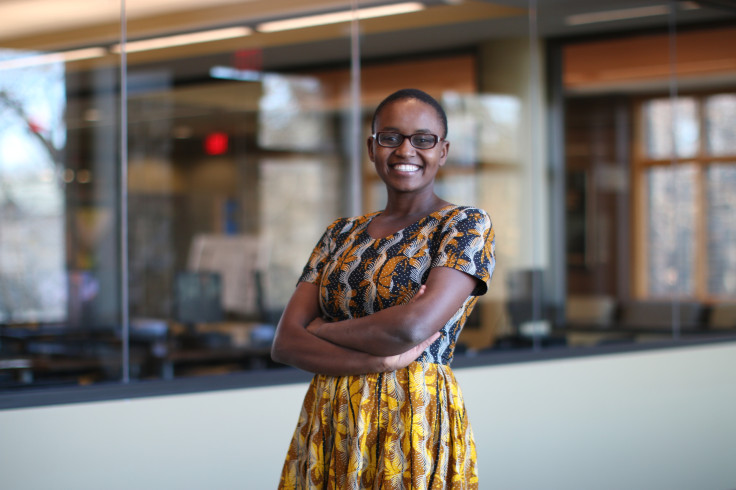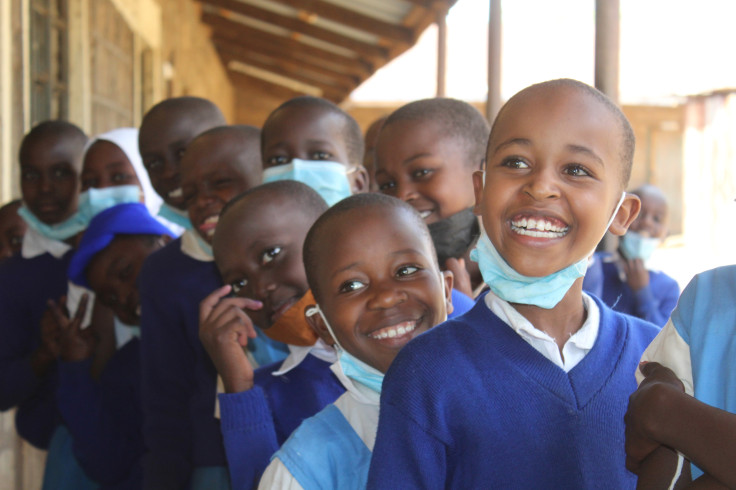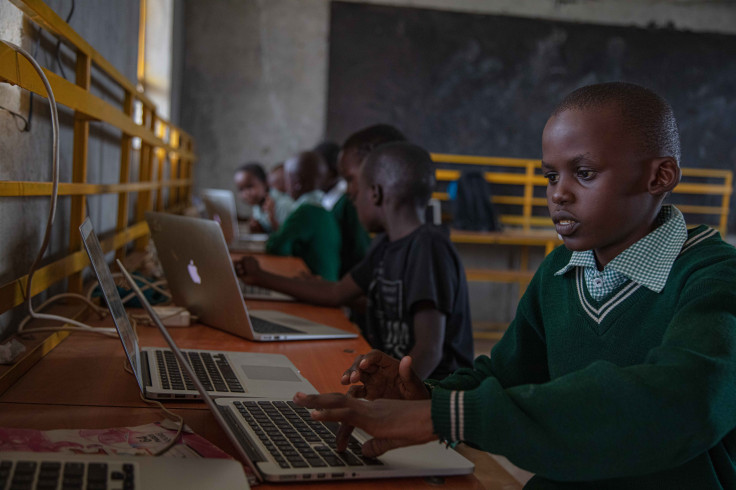The trailblazing engineer Nelly Cheboi built computer labs in Kenyan schools using recycled tech
Software engineer Nelly Cheboi on founding TechLit Africa and teaching young children digital skills to open new worlds for them.

Nelly Cheboi was 18 when she first used a laptop. She grew up in Mogotio, a rural town in Kenya, knowing only poverty. "I grew up wanting to fix poverty. I saw it. I lived it," she says. As child, she would spend her days after school selling charcoal on the streets and taking odd jobs to bring income to her mother, who worked tirelessly to educate Nelly and her sisters.
From an early age, Nelly realised that her family and the community she grew up with lived in a perpetual cycle of poverty that left them with little hope and no exit.
"She worked really hard," she says, speaking fondly of her mother. "I wanted to give her a break."
In 2012 she received a full scholarship to Augustana College in Illinois where she began her studies with almost no experience with computers, handwriting papers and struggling to transcribe them. She never felt comfortable using a computer until her junior year when she took java course required for her mathematics course, and fell in love with computer science.
But after graduating with a software engineering degree she was unable to land a job in America because she could not type fast enough. She took a touch-typing course for six months, and her life was transformed.
Now, a decade later, she is awarded the 2022 CNN Hero of the Year - an award given for extraordinary contributions to society. On July 2022, Nelly received this honour for opening the world of tech to young children in rural Kenya teaching them to code and build websites using imported tech from America.
Glowing in a blue Ankara gown, she took to the stage in New York to accept the award, and thank her mother who she shared the stage with.
The 29 year old engineer believes fixing the poverty and digital exclusion in rural communities is a simple issue logistics issue.
Once she began working in the industry, she realised the extent of which computers in America were being discarded in favour of new upgrades in companies. Here was her solution.
"These computers are being thrown in land fills," she says. "Just get them here." In 2018 she began transporting surplus computers from America back to Kenya in her personal luggage.
"At one point I was bringing 44 computers and I paid more in baggage than I did for the flight," she says.
Soon after, she co-founded TechLit Africa, as a way to change the lack of digital access for children in her rural town. "We're teaching digital skills in the hopes that we can unlock opportunities," she says.
The hardware is refurbished before its shipped to Kenya, then distributed across TechLit Africa's partner schools where children as young as 10 are taught basic computer science skills.

"We have people with specific skills coming in, inspiring the kids with music production, video production, coding, personal branding, and even remote classes with NASA."
Alongside TechLit Africa's computer labs is also the Zawadi school founded while Nelly was studying in America. She worked as a janitor to rally enough funds. Now, the school is flourishing teaching academic and vocational courses to community members.
"What does it look like for kids in rural Kenya, or rural Africa to have everything growing up." Nelly asks herself this question often to build the core tenants of the school's aim.
She is not just ending the tech drought but revolutionising education in rural communities, to include options beyond the basics.
"I'm constantly bringing in different resources. For example, we have a dance and music studio."
"What did I want to have as a kid and how can I bring this to the current to the current generation of kids? in my community," she says.
With over 4,000 students, and 10 schools in rural Kenya, Nelly is adamant this generation of children will not need to sell charcoal on the streets to survive, and that TechLit Africa could grant them a fighting chance.
Soon, they will expand to 100 schools across the country to accommodate the 40,000 students they hope to enrol.

Now, Nelly's schools have 5th graders building websites, and coding. The goal is by the time they are adults they are ready for the digital world.
"Instead of waking up in the morning and looking for a construction or taxi service jobs, they can work as accountants, software engineers, producers," she says.
"The world is your oyster when you are educated. By bringing the resources, by bringing these skills, we are opening up the world to them."
The digital world is advancing fast and as the world learns about metaverse, and Web.30, jobs are evolving and opportunities are in abundance. But the digital divide, especially in education across Africa means some are excluded from these opportunities.
Technology is increasingly playing a role in the quality of education, and more importantly the methods of learning. The pandemic has shown that technology can be a defining moment in children's education.
Exploring this digital divide and its implications for remote learning during the pandemic, the 2021 Ibrahim Forum Report found 89% of sub-saharan Africa do not have access to household computers, and 82% lack internet access.
Added to this is the wide gender dispirited in ownership of and access to digital devices, limiting opportunities for many girls. In Kenya the rate of women graduating in IT is disproportionally low, comprising of less than 30%.
So much of life, learning, working, commerce, healthcare, for the global communities happens online. But from the lack of adequate broadband infrastructure, to the poor digital literacy, villages like Nelly's are left behind, and people are forced to use labour as a source of income. Children are left with the traditional methods of education - textbooks, pencil and paper, and they too are left in the shadow.
'Technology is so easy to distribute. It's cheaper than building railroads and all these massive infrastructure. Nelly says. "If we ask ourself, what does it take to be part of the revolution, be part of the digital economy, it's so simple. Just get a laptop."
"We are seeing people like Majimbo who have fuelled empires on their smartphone," she says referring to Elsa Majimbo, the Kenyan internet sensation who has taken social media by storm.
For Nelly, the solution to the problem is direct. Give people access to technology, arm them with the right digital skills, and see how it changes their community.
In her village, Nelly recalls seeing people toiling away under the sun in Kibana (vegetable) stands. They knew of hard-work, and lasting hunger.
TechLit Africa's goal is to end this bitter cycle, and give people the chance to live a life with opportunity.
A life with dignity and no scarcity.
© Copyright IBTimes 2025. All rights reserved.





















